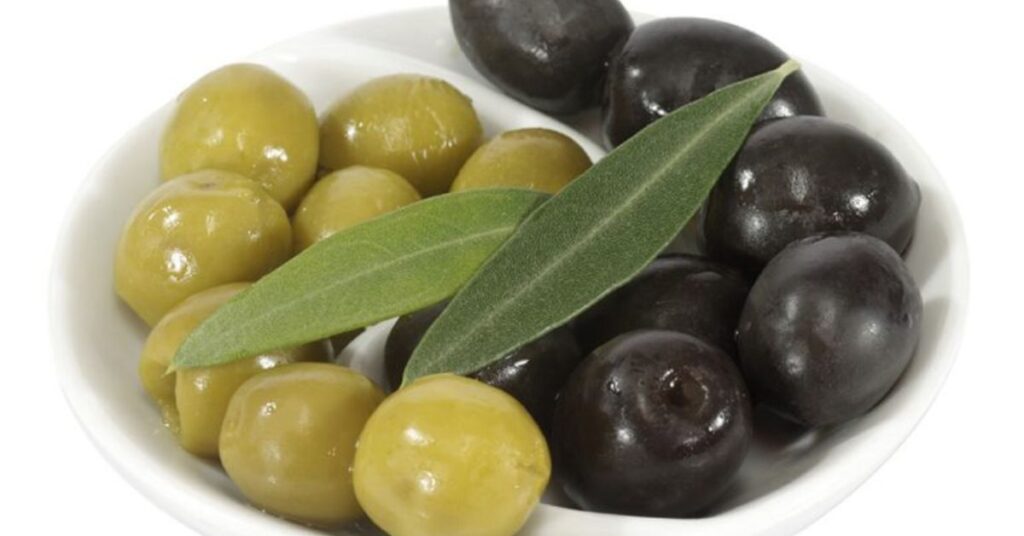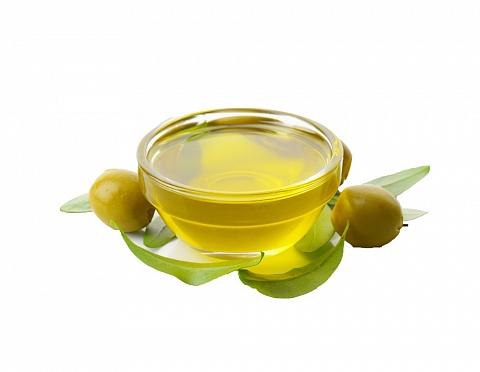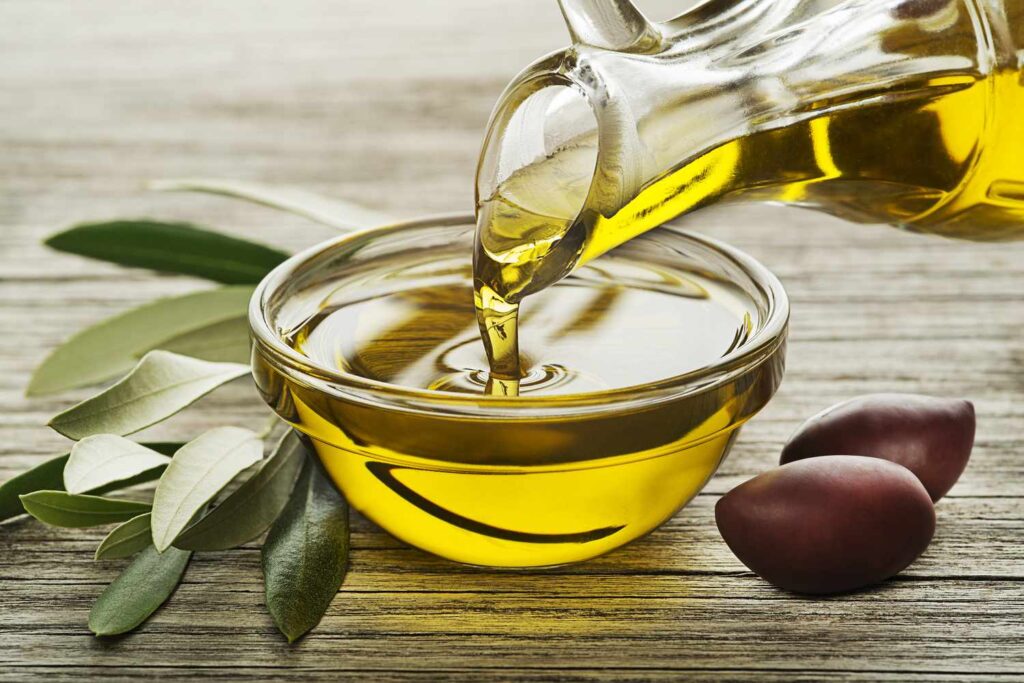Olive oil is a staple in kitchens worldwide, often hailed as a superfood for its impressive health benefits. Extracted from olives, it has been cherished for centuries, not only for its rich flavor but also for its profound impact on well-being. From cooking to skincare, olive oil is a versatile oil that offers a variety of uses.
An apple a day keeps the doctor away, the same as a tablespoon to your daily diet can keep you healthy for long. When we talk about the health benefits of olive oil, it’s more than just a cooking ingredient. Olive oil plays a crucial role in heart health, cognitive function, and even weight management. l. It’s no wonder that olive oil has earned a reputation as the “liquid gold” of the kitchen.
Research shows that the benefits of olive oil go beyond basic nutrition. It’s packed with monounsaturated fats, antioxidants, and powerful anti-inflammatory properties. These compounds make it a key element in preventing chronic diseases and promoting long-term health.
What Is Olive Oil?

Olive oil is derived from olives, the small fruits of the olive tree. The oil is extracted through a cold-press process that preserves its natural nutrients. This process results in high-quality extra virgin olive oil (EVOO), which is the purest form, packed with the highest concentration of nutrients. Olive oil is mainly made up of monounsaturated fats, which are considered heart-healthy fats.
Why Is Olive Oil Called “Liquid Gold”?
The term “liquid gold” highlights the extraordinary value of olive oil throughout history. In ancient Greece and Rome, olive oil was considered sacred and even used as a currency in some cultures. It was revered for its ability to enhance health, beauty, and vitality, making it an essential commodity.
Today, olive oil continues to hold immense value, especially in the context of the Mediterranean diet. Its health benefits are widely recognized worldwide, and it remains one of the most sought-after oils globally. The growing interest in its nutritional value and versatility keeps olive oil in high demand, especially in the USA.
You may also read this article: https://businessquasar.com/stay-fit-and-healthy-the-ultimate-guide-to-living-your-best-life/#
Brief Overview of Its Popularity and Health Benefits
Olive oil has long been a cornerstone of the Mediterranean diet, a lifestyle known for its numerous health benefits. People in Mediterranean countries, such as Spain, Italy, and Greece, have used olive oil for centuries due to its potential to reduce the risk of chronic diseases. Recent studies have also highlighted its impact on heart health, cognitive function, and weight management.
Nutritional Composition of Olive Oil

Olive oil is primarily composed of monounsaturated fats, particularly oleic acid. These heart-healthy fats lower LDL cholesterol, raise HDL cholesterol, and reduce the risk of cardiovascular disease. Their high heat stability makes olive oil ideal for cooking.
Extra virgin olive oil is rich in antioxidants like vitamin E and polyphenols. These compounds combat oxidative stress and inflammation, crucial for preventing chronic diseases like cancer and heart disease.
Olive oil is a valuable source of essential vitamins. Vitamin E, a potent antioxidant, protects cells and supports skin and immune health. Vitamin K, essential for bone health and blood clotting, further enriched olive oil’s nutritional profile.
you may find it beneficial after reading this blog: https://businessquasar.com/keep-your-skin-young-and-glowing-natural-beauty-tips/
Health Benefits of Olive Oil

Olive oil, often dubbed “liquid gold,” offers a wealth of health benefits. Rich in monounsaturated fats, primarily oleic acid, it contributes to heart health by lowering LDL cholesterol and raising HDL cholesterol. Beyond heart health, olive oil boasts antioxidant and anti-inflammatory properties, potentially reducing the risk of chronic diseases like heart disease, stroke, and certain types of cancer.
Heart Health
Numerous studies have shown that olive oil is a key player in promoting heart health. The monounsaturated fats in olive oil help reduce LDL cholesterol levels while increasing HDL cholesterol, which can lower the risk of cardiovascular disease. A landmark study, the PREDIMED trial, demonstrated that a diet rich in olive oil reduces the risk of heart disease and stroke, making it a heart-healthy choice.
Bone Health
Olive oil contains polyphenols, powerful plant compounds that promote bone health. These polyphenols help promote bone formation and reduce bone loss, offering potential protection against osteoporosis. Regular consumption of extra virgin olive oil has been linked to improved bone density, making it a valuable addition to the diet, especially for those at risk of bone health issues.
Anti-inflammatory Properties
One of the key health benefits of olive oil lies in its anti-inflammatory properties. Compounds like oleocanthal and oleacein are known to reduce inflammation in the body. These antioxidants work similarly to ibuprofen, a common anti-inflammatory drug. By lowering inflammatory markers, olive oil helps reduce the risk of chronic conditions such as arthritis, diabetes, and Alzheimer’s disease.
Cognitive Benefits
Olive oil may play a crucial role in preventing cognitive decline. Studies suggest that the antioxidants and polyphenols in olive oil protect the brain from oxidative damage and may even help reduce the risk of Alzheimer’s disease and dementia. The anti-inflammatory effects of olive oil also contribute to improved cognitive function, making it a potential ally in brain health.
Stroke Prevention
There is growing evidence that olive oil may help reduce the risk of stroke. Research has shown that the monounsaturated fats in olive oil can improve blood circulation and prevent the build-up of harmful cholesterol. This, in turn, helps reduce the risk of stroke. A Mediterranean diet, rich in olive oil, has been linked to lower stroke rates in countries like Greece and Italy.
Cancer Risk Reduction
The antioxidants in olive oil have been found to have anticancer properties. Studies suggest that olive oil may help reduce the risk of certain cancers, including breast cancer, gastrointestinal cancer, and urinary tract cancer. These benefits are likely due to the polyphenols and antioxidants that inhibit tumor growth and prevent oxidative damage to cells.
Rheumatoid Arthritis Treatment
For those suffering from rheumatoid arthritis, olive oil may help reduce joint inflammation. The anti-inflammatory effects of olive oil can ease pain and improve mobility for individuals with this autoimmune condition. Regular consumption of extra virgin olive oil may also help reduce the severity of symptoms.
Antibacterial Properties
Olive oil has natural antibacterial properties that help fight infections. Research has shown that olive oil can be effective against harmful bacteria such as Helicobacter pylori (H. pylori), which is linked to stomach ulcers and cancer. The oleocanthal in olive oil has also been shown to possess antimicrobial properties.
Type 2 Diabetes Prevention

Olive oil has shown promise in managing blood sugar levels, making it beneficial for those at risk of type 2 diabetes. Research indicates that olive oil can improve insulin sensitivity, helping to regulate blood sugar and prevent the development of diabetes. Its anti-inflammatory properties also play a role in reducing diabetes-related complications.
Weight Management
Despite being calorie-dense, olive oil does not contribute to weight gain when consumed in moderation. In fact, studies have found that the healthy fats in olive oil can help manage weight. The Mediterranean diet, which is rich in olive oil, has been associated with better weight management and a reduced risk of obesity.
Different Types of Olive Oil and Their Uses
There are several types of olive oil, each with its specific use and health benefits. Extra virgin olive oil (EVOO) is the highest quality and is best used in raw applications such as salad dressings or as a finishing oil. Virgin olive oil is slightly less refined and versatile, making it suitable for both cooking and drizzling. Light and refined olive oils are ideal for high-heat cooking, as they have a higher smoke point.
FAQ’s
What is olive oil?
Olive oil is extracted from olives, the fruits of the olive tree. Extra Virgin Olive Oil (EVOO) is the highest quality, rich in monounsaturated fats, particularly oleic acid.
Why is it called “liquid gold”?
Olive oil was historically highly valued, even used as currency, due to its health, beauty, and vitality benefits.
What are the key health benefits?
Olive oil promotes heart health by lowering LDL and raising HDL cholesterol. It also possesses anti-inflammatory properties, benefits bone health, and may reduce the risk of stroke, cancer, and Alzheimer’s disease.
What are the different types?
Extra Virgin Olive Oil (EVOO) is best for raw use, while Virgin Olive Oil is suitable for cooking and drizzling. Light and Refined Olive Oils are ideal for high-heat cooking.
How can I enjoy it?
Olive oil can be drizzled on salads, added to soups and pasta, used as a finishing touch for bread, and even incorporated into desserts.
Conclusion
Incorporating olive oil into your daily diet is more than just a culinary choice – it’s a step toward better overall health. Its rich content of monounsaturated fats, antioxidants, and anti-inflammatory properties makes it a powerful tool in preventing chronic diseases such as heart disease, stroke, Alzheimer’s, and even cancer. By including extra virgin olive oil in your meals, you are not only enhancing flavor but also improving your heart, brain, and bone health. Research consistently highlights its benefits, showing that olive oil can support various aspects of well-being when consumed as part of a balanced diet.
Furthermore, olive oil is an essential component of the Mediterranean diet, a proven model for long-term health and disease prevention. Its versatility in the kitchen, from salad dressings to high-heat cooking, ensures that it can be seamlessly incorporated into any meal. With its positive impact on inflammation, weight management, and blood sugar levels, olive oil is an easy and delicious way to boost your health. So, whether you’re aiming for a healthier heart, sharper mind, or more vibrant skin, adding this liquid gold to your diet is a smart and delicious choice.







